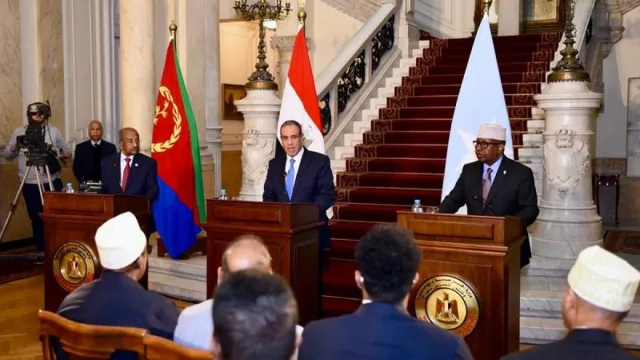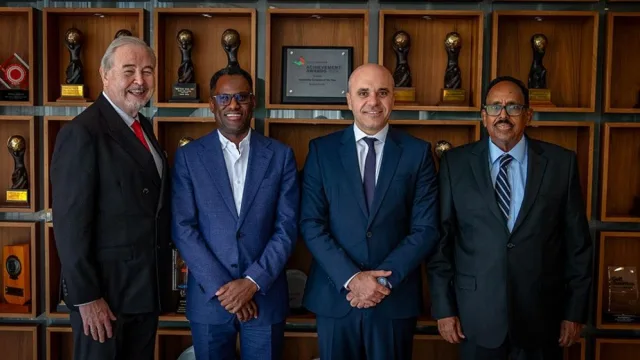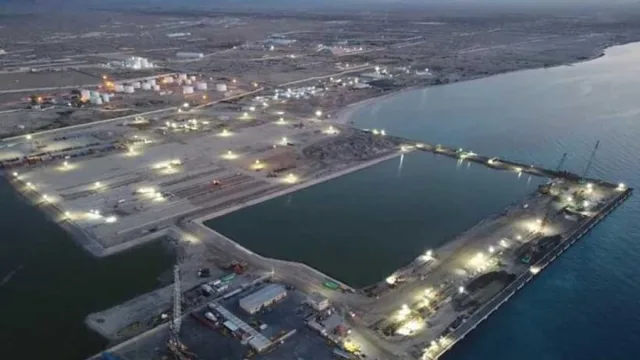Last week, the Minneapolis committee of intergovernmental relations unanimously voted in favour of a proposal suggesting…

Last week, the Minneapolis committee of intergovernmental relations unanimously voted in favour of a proposal suggesting to establish relations with Bosaso town, the commercial hub for the Somalia’s semi-autonomous region of Puntland.
The Proposal was submitted by the Somali community leaders in Minneapolis.
If you’re a Minneapolis resident or from the other world, you may have wondered why the city (Minneapolis) has moved on to start partnership with a town located in a nation which is just recovering from over two decades of civil war and lack of efficient Central government.
In the era of rapid globalization, many historic cities are increasingly challenged by their responsibilities to preserve their cultural heritage, as well as keeping the living traditions flourishing under changing circumstances. To increase their capacities and the efficiency of public actions, many cities search for outside partners for institutionalized cooperation and joint actions.
The Sister Cities International program is a non-profit group that seeks to strengthen diplomatic ties between municipalities across the globe and offer citizens a chance for cultural exchange. Communities that share this bond often raise money to benefit one another.
Bosaso became the first city in Somalia to establish relations with a city in the United States of America.
In spite of that, the relationship between the people of both cities has been growing in recent years. Over the past decades, many Americans of Somali decent have made their home in Minneapolis.
“Both communities are dear to me,” Warsan Abdi said, adding that most of her family members still reside in Bosaso. “I feel at home in both places.”

Flashback
Located in North-eastern Somalia on the Gulf of Aden coast, Bosaso is the third largest city in the country and it is the economic heart of Puntland State with a major seaport. The town has an estimated population of 700,000 with residence to various Somali clans.
The earliest written records of the region come from The Periplus of the Erythraean Sea which describes that ancient Greek merchants sailed to Bosaso, providing notes about the strategic and geographical location of the current Bosaso area, which was known as Mosylon in ancient times.
The town’s economy has grown rapidly since the start of civil war in the country and before it was regarded as a ‘‘remote’’ area by the former Military government. Only local traders and businessmen used the port to export goods to neighbouring Arab countries.
Many analysts have agreed that the new born relationship will be a benefit for both residents if both sides cooperate extensively.
Headquarters for Telecommunication Operators

Somalia has the lowest international call rates in Africa and one of the cheapest in the world, as reported by experts and Independent researchers.
In Bosaso, three phone companies are engaged in fierce competition for both mobile and landline customers.
International calls cost 50 US cents a minute, while surfing the web is charged at 50 US cents an hour – which is regarded as one of the cheapest in the continent by Company officials.
For instance, it takes less than three days for a landline to be installed – compared with waiting-lists of many years in neighbouring countries like Kenya, where there is a stable and effective government.
The internet sector in Somalia has two main advantages over many of its Africa neighbours.
There is a huge diaspora around the world – between one and three million people, compared with an estimated seven million people in Somalia – who remain in contact with their friends and relatives back home.
One of the Telecoms companies’ officials says that they are looking forward to an even brighter future with the new era of sister city partnership support – as long as there are no unnecessary restrictions.
Besides on that, industries and factories that produce different products operate in the town which are privately owned.
Success Local Entrepreneurs
The Somali community is active in many sectors of the business world and is particularly influential in the setting up of small businesses and are also regarded as ‘’risk takers’’.
“Urban businessmen, international corporations, and rural pastoralists have all functioned in stateless Somalia, achieving standards of living for the country that are equal or superior to many other African nations,” says the US-based Independent Institute in a report.
Local businessmen in the town have managed to set up links with neighbouring hubs of world business, such as Dubai by exporting and importing various types of goods.
The largest African community in Dubai is the Somalis, driven out of their home by years of unrest. More than 40% are believed to hail from Puntland, who have managed to set up big firms in UAE with lack of broad experience.
Since the fall down of the Central government in 1991, a large number of Somalis have been travelling to Dubai to procure goods for sale in Somalia and nearby countries. The major items being exported from Dubai to Somalia include rice, sugar, clothes, building materials, electronics, household goods, textiles, automobile spare parts, tyres, batteries, cosmetics, used machinery and hardware.
The easy availability of a variety of competitively priced goods and excellent air and sea connections for transportation of goods have helped to promote Dubai as a shopper’s paradise for them.
Strategic Seaport
Very Close to the Gulf of Aden, it became an important commercial point of entry, and according to International organisations it has also served as a refuelling station for maritime transport between the Red Sea and Persian Gulf.
The Port of Bosaso does not only serves its residents but is also the main gateway for the other regions. Goods that are imported are transported to countries such as Ethiopia.
For the past two decades, Somali pastoralists were unable to export their livestock to the world market in any other ports due to the conflict that plagued the nation.

The port also serves livestock trucked from the neighbouring Ethiopian regions of Somali and Oromiya.
According to the United Nations’ Food and Agriculture Organization (FAO), the livestock sector is Somali’s economic mainstay as it marks the largest contributor to Somali livelihoods with over 65 percent of the population engaged in some way in the industry.
Bosaso has also an airport which provides local and International flights.
Centre for Education
The city is also an educational centre and boasts of many schools, colleges and universities.
Over 70 Primary and Secondary Schools are opened in the town, which are conducted in English, Arabic and the Somali local language, according to a report from the Ministry of Education.
There are also two Universities, East Africa University (EAU) and Mogadishu University, which provide different skills of education to those who successfully finish their higher education with a guidance of foreign lecturers.
A large number of students travel from the other parts of the country, seeking for a good quality of education.
Tourism sites

Bosaso which lies on the red sea has a natural beauty sandy beach. During the weekends, the beach is packed with youngand old people taking part in different activities such as playing soccer, swimming etc.
In the outskirts of the town, there is a tourist hotspot named ‘’Biyo Kulule’’ which has abundant palm trees and the naturally boiled water that flows freely from the spring as a stream and then collects to three different pools were people take baths.

‘’ We are optimistic that we will gain from each other different things such as enhancing cultural understanding, tourism and educational and job opportunities,’’ said one of the Bosaso local elders.
According to Jennelle Root (Director of Programs and Grants, Sister Cities International) Sister City relationships can advance peace and mutual understanding between the cities and nations, if well managed.
Ayub Abdirahman
Horseed Media
ayuubabdirahman@gmail.com
Follow the writer on Twitter: @AbdirahmanAyub


